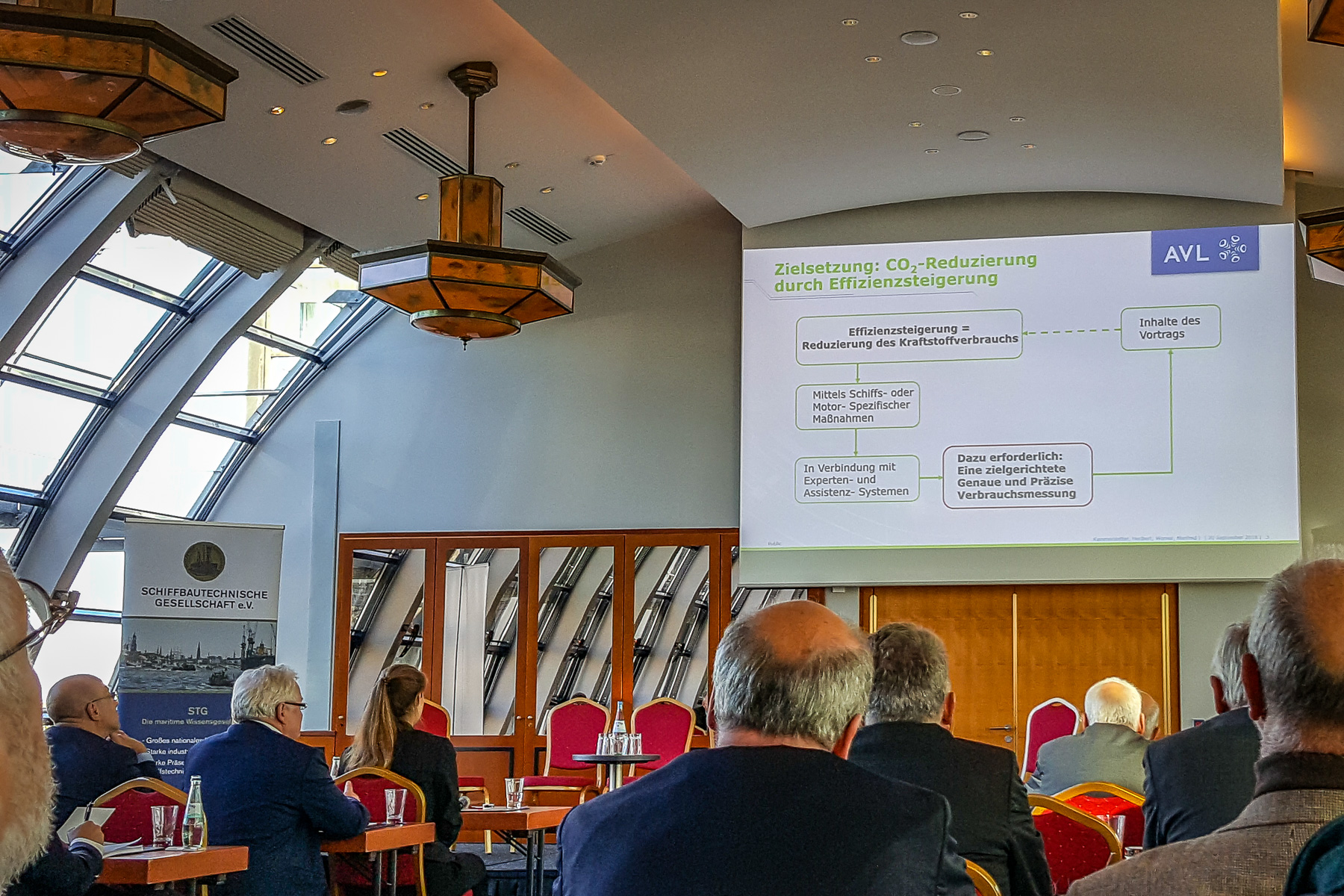GRENDEL - CO2 reduction in ocean shipping: The never ending pursuit for the most economic vessel
08-10-2018
 Alike the IWT the seagoing industry also faces a growing need for fleet greening. The conference organised by the German association “Schiffbautechnische Gesellschaft” on 24 September 2018 in Hamburg offered insights into some details of this complex of topics.
Alike the IWT the seagoing industry also faces a growing need for fleet greening. The conference organised by the German association “Schiffbautechnische Gesellschaft” on 24 September 2018 in Hamburg offered insights into some details of this complex of topics.
The use of alternative, carbon-reduced, fuels is one of the main pillars of fleet greening. At the conference the potentials, risks and chances of alternative fuels were introduced, as well as some insights into concepts for the production of synthetic fuels, which are very interesting for the IWT fleet. Gerd-Michael Würsig (DNV GL) presented an overview of the most promising alternative fuels and also gave some financial details on fuel costs It was pointed out, that for seagoing ships an alternative to the HFO (Heavy Fuel Oil) can be found with LNG or synthetic fuels, once these are being produced in a large enough quantity. Since with the new fuels also an economic choice needs to be made, he pointed out that alternative fuels need to be available to a reasonable price. Another speech held by Rolf Bank (MAN Diesel&Turbo) presented a plant for synthetic natural gas production. The site is placed in Werlte, Germany and produces 300m³ NG per hour. The plant consists of several modules that can be easily extended.
Another remarkable point was the presentation given by Lars Greitsch (MMG) on the optimisation of propulsion systems which can help to either optimise an old propeller or to find a good solution for a new transport task. The talk held by Heribert Kammerstetter (AVL), focused on the close monitoring of the current fuel consumption, which is a complicated task for seagoing vessels using HFO. The IWT with its fast-running comparably small engines has some advantages here in the complexity of the measuring equipment.
The last speech of the day, held by Hannah Ohorn (Maersk Line FMt), presented a greening strategy for a whole fleet, making use of an advanced performance monitoring system which helps to plan tasks and routes closely and which may also point out the vessels with the highest need for greening in the fleet.
During the workshop it became clear, that the seagoing sector has also started to develop strategies for greening which have great similarities with the strategies for the inland sector. Especially the presented information about the alternative fuels and the fleet management strategy are valuable inputs for the GRENDEL project, that can directly be used within WP3 “Fleet investment planning”.
